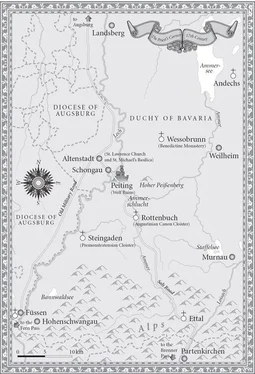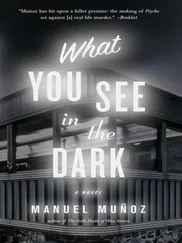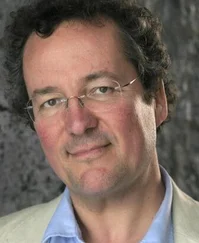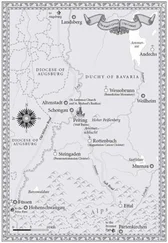Oliver Potzsch - The Dark Monk
Здесь есть возможность читать онлайн «Oliver Potzsch - The Dark Monk» весь текст электронной книги совершенно бесплатно (целиком полную версию без сокращений). В некоторых случаях можно слушать аудио, скачать через торрент в формате fb2 и присутствует краткое содержание. Жанр: Исторический детектив, на английском языке. Описание произведения, (предисловие) а так же отзывы посетителей доступны на портале библиотеки ЛибКат.
- Название:The Dark Monk
- Автор:
- Жанр:
- Год:неизвестен
- ISBN:нет данных
- Рейтинг книги:5 / 5. Голосов: 1
-
Избранное:Добавить в избранное
- Отзывы:
-
Ваша оценка:
- 100
- 1
- 2
- 3
- 4
- 5
The Dark Monk: краткое содержание, описание и аннотация
Предлагаем к чтению аннотацию, описание, краткое содержание или предисловие (зависит от того, что написал сам автор книги «The Dark Monk»). Если вы не нашли необходимую информацию о книге — напишите в комментариях, мы постараемся отыскать её.
The Dark Monk — читать онлайн бесплатно полную книгу (весь текст) целиком
Ниже представлен текст книги, разбитый по страницам. Система сохранения места последней прочитанной страницы, позволяет с удобством читать онлайн бесплатно книгу «The Dark Monk», без необходимости каждый раз заново искать на чём Вы остановились. Поставьте закладку, и сможете в любой момент перейти на страницу, на которой закончили чтение.
Интервал:
Закладка:
“It’s you again,” he whispered. “What else do you want?”
The hangman spun around. “What kind of a pigsty is this?” he shouted at the bailiff, who was still absorbed in the exotic, fragrant plant. “These people have nothing to eat or drink, and there are no blankets or fresh straw! Do you want them to die before they are executed?”
The bailiff shrugged. “You can see for yourself what the weather is like outside. I’ve asked twice for food, but none arrives.”
“Then go and get it yourself.”
“Now?” Johannes looked bewildered. “But the storm-”
“At once!” The hangman walked over to him, grabbed him by the collar, and lifted him off the stool so that his feet dangled in the air. His face turned bright red, and his eyes bulged.
“That’s the way Scheller is going to feel soon,” Jakob Kuisl growled, “and so will you, by God, if you don’t do what I say at once. Fresh water, bread, warm blankets-do you understand?”
The bailiff nodded, and Kuisl let him down again.
“And now get out.”
Without even turning around, Johannes rushed out. Snow and wind blew in through the open door, but as soon as the hangman closed it, silence prevailed once more in the dungeon. The only sounds now were the soft whine of the baby and the distant howling of the wind. The robber chief looked at Jakob Kuisl in astonishment. Just as he was about to ask a question, the hangman spoke up.
“Did the medicine I gave you help the boy?”
Scheller nodded, still speechless about what he had just witnessed. “Why did you do that?” he asked finally.
Jakob Kuisl didn’t answer. “I spoke with Lechner,” he said. “No torture on the wheel, a quick, clean hanging, and the women and children will be let go.”
Scheller broke into a wide smile, but soon he turned serious again. “How long do we have?” he asked.
Jakob Kuisl took a draw on his cold pipe. “If the weather permits, the trial will be in a few days. After that there will be three more days-that’s the custom. Semer, the tavern keeper, will serve you your last meal: bacon, dumplings, sauerkraut, and for each of you, a jug of muscatel to keep you warm on your last walk.”
Hans Scheller nodded. “A full week, then.” He stopped. “It’s good it’s over,” he said finally. “This wasn’t really any way to live.”
The hangman changed the topic. “There’s still something I have to ask you about the other gang of robbers. You said there were four of them. Four plates, four cups, four knives…”
Hans Scheller nodded. “As I said, the fourth probably had just gone out into the woods to relieve himself.”
“But the fourth plate,” the hangman continued. “Was it dirty? Did it looked used?”
The robber chief stopped to think. “Now that you mention it…actually, no. You’re right…Three plates that had been used were around the fire, but the fourth was stashed away in one of the saddlebags along with a cup.”
Jakob Kuisl chewed on his cold pipe stem, cursing to himself because it had gone out. “That must mean that the fourth man hadn’t been with the others for a while. Perhaps he was in town.”
Hans Scheller shrugged. “Who cares where the fourth man was? Perhaps he had run away earlier.”
The hangman told him about the town clerk’s suspicion that information about the merchants’ secret routes had been leaked to someone. The robber chief nodded.
“I understand. The fourth man hangs around in town and informs his comrades about the routes. Then all they have to do is help themselves. After all, the wagons are not very well guarded, and the merchants are not afraid of anything. Not a bad plan.” He grinned, and Kuisl could see that almost all of his top teeth were missing. “Sounds like a plan I would make up.” Suddenly, he stopped. “I just thought of something.”
“What is that?”
“Alongside the leather bag that you have now, something else was lying there by the campfire-a little bottle made of blue glass. It looked quite valuable, and when we opened it, it smelled like the whole damned palace of the French kings.”
Jakob Kuisl forgot about his pipe. “Perfume, you mean?”
Scheller nodded. “Yes, exactly. It stank like a whole field of spring flowers.”
“And this perfume…” The hangman chose his words carefully. “Did it smell like…violets, perhaps?”
Scheller shrugged. “I don’t know anything about these things. We poured it over our horse. He smashed the bottle the next day in the cave, the stupid beast.”
Jakob Kuisl contemplated this a few more minutes, then turned to leave. “Thanks, Scheller. You’ve been a lot of help to me. When we meet the next time, I’ll see to it that it goes fast. I promise.”
“Kuisl.” Hans Scheller’s voice had a faraway, dreamy sound. The hangman turned around.
“What is it, Scheller?”
The robber chief seemed to be struggling for words. Finally, he began to speak. “Do you really want to know what I’ve learned, hangman?”
“Tell me.”
“I was a carpenter, a good one, down in Schwabmunchen. But then the Swedes came and raped my wife and cut her throat. They bashed my boy’s head against the door and set my house on fire. I fled into the woods, and now it all ends here.” He tried to smile. “Tell me, hangman. If you were in my shoes, what would you have done?”
Jakob Kuisl shrugged. “You always had a choice.” He walked to the door, but then turned around again. “I’m sorry about what happened to your wife and the boy. At least you’ll be together again soon.”
The door closed and Scheller remained alone with his thoughts. He would have cried like a little child if he hadn’t long since forgotten how.
Outside, the blizzard lashed Jakob Kuisl’s face with sharp pellets of ice. He pulled his hat down and forged ahead through the wall of white. His head was spinning as if the storm were also raging inside him.
A perfume that stank like a meadow in springtime…
Had the man with the violet perfume paid a visit to the robbers? Or was he the fourth man? Magdalena told him that the stranger had been sitting with his friends in the Altenstadt tavern. Had they overheard the merchants’ conversations about the route? But even if that was the case, what did any of this have to do with the Templars’ treasure? The hangman cursed. He needed to finally put all those pieces together.
Another day would pass before the good Lord would send someone to help Jakob Kuisl solve at least one of the riddles.
The blizzard brought new patients, so Simon hardly had a moment to even think about the Templars or the Wessobrunn Prayer during the day. He and his father had been able to save only one of the two wagoners employed by the alderman Matthias Holzhofer. The other had quietly passed away the same evening.
In other respects, too, Simon and his father never had a chance to rest. They passed the hours stirring new medicine, bleeding patients, and examining urine. Among the victims of the “Schongau Fever,” as the epidemic had come to be known, were a carpenter’s journeyman whose whole body had broken out in blue pustules, another patient whose foot was crushed by an oxcart, and a wagon driver with frostbite on both hands. The man had attempted to drive from Schongau to Landsberg in his wagon and was discovered lying in a ditch only a mile from town. He had been trying in vain to pull his wagon out of the snow when he was finally overcome by the cold. Simon and his father agreed that three fingers on the left hand would have to be amputated-a job that Bonifaz Fronwieser regarded as one of his specialties since his days as an army doctor.
Old Fronwieser had traveled around with his family during the Great War, following the Bavarian foot soldiers. He had sawed off innumerable arms and legs that were riddled with bullets, and he cauterized the stumps. It was during this time that his wife died, so after the war, Bonifaz Fronwieser settled down in Schongau with his son. He’d never forgiven his son for dropping out of an expensive medical school in Ingolstadt a few years ago, partly because he was short of money, but also because he lacked the interest. Even back then, Simon was attracted more to the latest fashions and games of dice than to Hippocrates, Paracelsus, and Galen.
Читать дальшеИнтервал:
Закладка:
Похожие книги на «The Dark Monk»
Представляем Вашему вниманию похожие книги на «The Dark Monk» списком для выбора. Мы отобрали схожую по названию и смыслу литературу в надежде предоставить читателям больше вариантов отыскать новые, интересные, ещё непрочитанные произведения.
Обсуждение, отзывы о книге «The Dark Monk» и просто собственные мнения читателей. Оставьте ваши комментарии, напишите, что Вы думаете о произведении, его смысле или главных героях. Укажите что конкретно понравилось, а что нет, и почему Вы так считаете.












